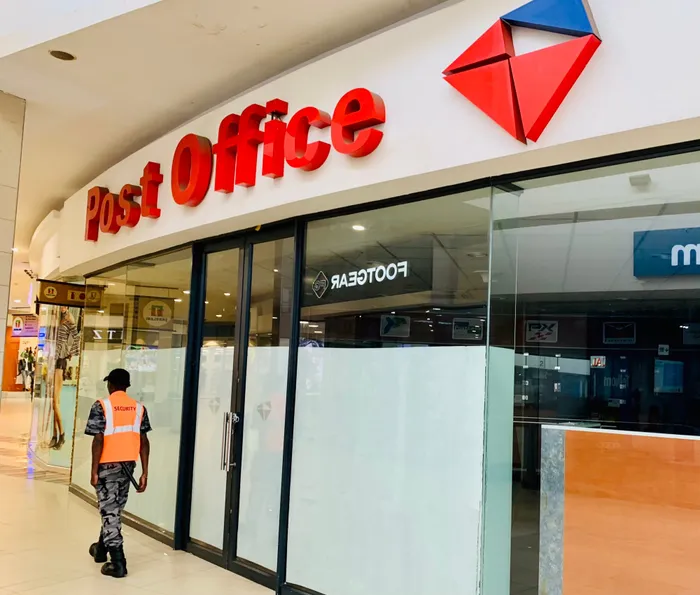FPB under fire for online content regulation as Sapo BRPs evade accountability
Deepfake Regulation

The day’s proceedings took a dramatic turn when Sapo’s BRPs failed to appear despite being summoned.
Image: Bhekikhaya Mabaso/Independent Newspapers
IN a heated session before the NCOP Economic Development & Trade Committee, the Film and Publication Board (FPB) faced intense questioning over its capacity to regulate harmful online content, while the SA Post Office’s (Sapo) business rescue practitioners (BRPs) dodged accountability altogether, leaving legislators frustrated.
The FPB, mandated by the Film and Publications Act, is tasked with protecting the public from harmful digital content such as child sexual abuse material (CSAM), hate speech, cyberbullying, and deepfakes.
Despite these responsibilities, the organisation admitted to grappling with significant challenges, including limited legislative powers, insufficient funding, and its inability to access illegal spaces like the dark web.
Committee chairperson Sonja Boshoff from the DA did not mince words, criticising delays in legislation that have left the FPB without full regulatory authority. “We are still waiting for legislative measures that would give the FPB the tools it needs,” she said, pointing out that global platforms like WhatsApp, Facebook, and TikTok did not align with South African standards.
She questioned why binding agreements or memoranda of understanding (MoUs) had not been established to ensure compliance.
Adding fuel to the fire, Boshoff condemned the government’s decision to expand the FPB’s mandate without increasing its budget. “Why increase responsibilities without adjusting the budget?” she asked. The FPB operates on a self-generated revenue model covering about 50% of its expenses, but it was unclear how this would sustain broader enforcement efforts.
One of the most contentious issues raised during the meeting was whether political content — such as EFF leader Julius Malema’s controversial song “Kill the Boer” — fell under the FPB’s jurisdiction. The DA’s Nicolaas Pienaar posed this question directly, highlighting concerns that definitions of harmful content could be politicised.
Deputy Minister Mondli Gungubele deflected responsibility, saying: “The courts have already ruled on this matter.” However, Advocate Makhosazana Lindhorst clarified that the FPB could only investigate online content following a formal complaint, implying that Malema’s song did not fall within their purview.
Deepfakes emerged as another critical concern. Pienaar pressed the FPB on whether they monitor deepfakes, noting that there seemed to be inadequate attention given to this growing threat. While chief executive Ephraim Tlhako acknowledged the difficulty in distinguishing real from fake content, he stressed the importance of educating users to identify such manipulations. Yet, no concrete strategy was presented for actively monitoring or regulating deepfake proliferation.
Resource constraints loomed large throughout the discussion. Between April and December 2024, the FPB handled 18 CSAM cases involving nearly 178 411 files, confirming 7 461 as CSAM. In 2025 alone, two additional cases with more than 40 000 images were ongoing.
Despite these alarming figures, questions remained about the efficacy of countermeasures. “What strategies are in place to prevent the distribution of this content? How do you evaluate your impact?” Boshoff demanded. These queries went largely unanswered.
Meanwhile, calls for outsourcing regulation to more advanced countries were firmly rejected by Director-General Nonkqubela Jordan-Dyani, who argued instead for building local capacity. “We should capacitate our people so they can adequately respond,” she said. This stance aligned with the Department’s push for an audiovisual policy set to regulate platform providers later this year.
However, the day’s proceedings took a dramatic turn when Sapo’s BRPs failed to appear despite being summoned. Their absence drew sharp criticism from the committee. Having requested — and been denied — a second postponement, the BRPs sent representatives instead, a move deemed unacceptable by legislators.
The ANC’s Solomon Mabilo voiced his frustration, saying: “It’s time we subpoena Sapo.” The FF+’s Hendrik van den Berg echoed this sentiment, dismissing engagement with substitutes as futile, especially given Sapo’s request for an additional R2.5 billion in funding. “Their representatives cannot provide meaningful input,” he said.
Boshoff expressed her disappointment, vowing to explore legal avenues to compel attendance. “They’ve had four months to prepare,” she said, accusing the BRPs of shirking their responsibilities. Gungubele supported the committee’s resolve, affirming his respect for their decision.
As the meeting adjourned, it became clear that both the FPB and Sapo face mounting pressure to demonstrate accountability and effectiveness. For the FPB, the challenge lies in balancing freedom of expression with public protection amid resource and legislative limitations.
For Sapo, failure to engage meaningfully may lead to unprecedented legal action. One thing is certain: neither organisation can afford further missteps if they hope to regain the trust of Parliament and the public.